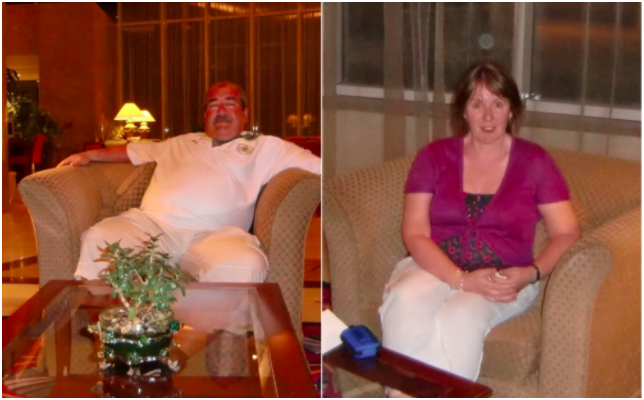
£2,500 initial investment
Bristol couple Neil and Kim Bacon are successful business owners who bought a Tenerife timeshare membership for £2,500 back in 1998. “It seemed like great value,” Neil says. “We didn’t have to think about it, we signed up that day.”
Unfortunately for the Bacons, this was just the start. They were upsold repeatedly over the next 12 years to the point where the expense is threatening their retirement. The couple report having been manipulated, mis-led, and outright defrauded by string of duplicitous sales people, with the worst offenders working at disgraced Maltese timeshare company: Azure
Systematically targeted
Mr and Mrs Bacon’s case made the media, but is no means a unique history, according to industry experts.
“What most new timeshare owners don’t realise,” explains Andrew Cooper, CEO of European Consumer Claims (ECC), “is that the initial investment is a drop in the ocean. Timeshare clubs systematically target returning guests for upgrade and new product sales. On average less than 20% of a timeshare company’s revenue is accounted for by ‘cold line’ sales (new members). The remaining 80% comes from ‘in house’ sales. This means that statistically the membership costs will eventually grow to five times the initial outlay. Add the yearly fees to that and you are looking at spending a fortune compared to regular hotel stays in the same standard.”
£80,000 penthouse week
The Bacons ended up after several years of upgrading and changing clubs with a week in a penthouse at the Azure managed Golden Sands resort in Malta, having paid out an eye watering total of £80,000 (excluding annual fees).
“They did things the expensive way,” says Jack Dawson, timeshare contracts authority at ECC. “If the penthouse week had been the first thing they bought, it would have cost them a fraction of that but unfortunately, like most members, they went through a succession of upgrades before ending up with what they believed would be their final purchase.”

The Bacons knew they had overpaid for their penthouse week, but comforted themselves with the knowledge that they now had exactly what they wanted, and would not need to buy anything more. Sadly, an Azure sales rep by the name of Iggy had other ideas about that.
Criminal activity
“We bumped into Iggy on their next holiday, and straight away told him we were at the end of our buying journey. He took us for a coffee anyway and told us he knew we had spent a lot of money so far, he wanted to do us a favour.
“Up to this point, the sales techniques were pretty high pressure and borderline dishonest, but what Iggy was about to do crossed the line into what we believe was criminal activity. He told us that we could buy a couple of weeks for around £40,000. Allegedly well below market value because of a family bereavement (or some such story) and that we would be able to sell them at a good profit through the ‘Azure Resale Program’ two years later.
“We saw this as an opportunity to recoup some of the money we had wasted and Iggy arranged a loan through Barclays Partner Finance. We bought the two ‘investment’ weeks.
The Bacons discovered in 2015 that no “Azure resale Program” existed. Iggy had lied and was now long gone, leaving the Bacons stuck with two unwanted, overpriced weeks.
Sarah Waddington
The couple decided to seek legal advice from Sarah Waddington Solicitors. Neil and Kim understandably believed that by using this SRA regulated, UK firm they would be in good hands. Unfortunately they only met with further disappointment.
“After discussing with our situation with Sarah Waddington’s we felt certain we had found our saviours, and that we had a solid chance of getting at least some of our money back,” says Neil. “That turned out to be very far from the truth”
Despite paying several thousand pounds to SWS, Neil and Kim ended up in an even worse position.
Awful advice
“Sarah Waddington told us to withhold our maintenance payments while they ´sorted things out´ with Azure,” says Neil. “This awful advice resulted in us having all of our weeks confiscated for zero compensation. Golden Sands took the weeks back off us. Just like that. We now own nothing at all, except debt.”
Neil and Kim are now stuck with suffocating liabilities, a second mortgage, owning nothing, and their retirement plans ruined.
“Sadly there is nothing unusual about Mr and Mrs Bacon’s case,” says ECC‘s Andrew Cooper. “We hear versions of this all the time. The knee jerk reaction is to blame the Bacons for making bad choices, but these are people who have run a successful business in the UK for 20 years, and that is by no means an easy thing to do.
“What this story should tell people is that timeshare companies are very cunning, extremely sophisticated, and in many cases completely lacking in morality.
“Make no mistake; if canny businesspeople like the Bacons can be caught out, then so can anybody else.
Do your research
Cooper advises that a lot of heartache and financial loss can be saved if people will seek independent advice before spending money. “This goes for timeshare purchases or any other service related to timeshare including firms who offer to help you escape from unwanted contracts or help you claim compensation. Ideally do your research before retaining professional assistance, but if you do get approached by a firm who seem genuine, insist on checking their credentials out with a consumer organisation before giving them any money.”
Media requiring further information on this case, please get in touch with Mark Jobling on the contact details below;
E: info@ecc-eu.com
T: 0800 6101 512 / 0203 6704 616
